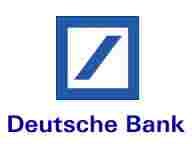One word is rearing its ugly head again across the Atlantic in Europe: crisis. Portugal’s debt situation and Greece’s ongoing economic weakness are threatening Europe’s relative stability of the past year. The nations on the periphery are a far cry from fiscally conservative powerhouse Germany, but will the region’s strongest economy — and its investors — be affected as well by the continent’s economic troubles?
The DAX PERFORMANCE-INDEX (INDEXDB:DAX) sure didn’t inspire much confidence this week as the German index dumped 2.4% on Friday to cement a week in the red. What caused the drop? A combination of factors both within and without Europe’s economic stalwart have hurt investors this week. Let’s catch up on the latest.
Europe fears resurface
Portugal commands attention across Europe as the nation struggles to meet its EU and IMF bailout obligations. The country’s bond yields have surged, and two governing ministers attempted to resign earlier in the month, inciting fears that the country’s stability since its bailout may be coming to an end. Greece is also struggling to meet its obligations, and Germany and other leading economies in Europe can’t afford a reigniting of the dangers that inflicted so many of the continent’s economic woes.
Those fears sparked a sell-off in the European banking sector during the week, although the ECB attempted to stave off fears by leaving interest rates unchanged at current lows. Ratings firm S&P hit Deutsche Bank AG (USA) (NYSE:DB) with a ratings cut on Tuesday, downgrading Germany’s big bank from an “A-plus” to an “A.” S&P cited the European economy’s sluggishness for diminishing Deutsche Bank AG (USA) (NYSE:DB)’s growth prospects, but regulatory rules around the world are hampering the company’s competitiveness as it tries to keep up with other leading international financial firms. With Deutsche Bank AG (USA) (NYSE:DB) also potentially facing a cash shortfall in order to keep up with regulatory proposals, Germany’s pillar of finance may be one of the country’s first stocks to wade into trouble.
More worrisome for investors, Germany’s own economy is hardly booming. The country’s factory orders fell for a second straight month in May, dropping 1.3%. Economists had expected growth out of Germany’s industrial sector, and the unexpected fall is a sign that the region’s ongoing slump is hitting German firms hard.
The company’s Asian segment has struggled recently with falling margins, but Asia is one of the best regional growth prospects across the world right now as advanced economies sputter along — even as China’s slowdown intensifies. It’s a significant investment by BASF SE (ADR) (OTCBB:BASFY), but one that looks like it could pay off in the long term.
Deutsche Bank AG (USA) (NYSE:DB) wasn’t so kind to adidas AG (ADR) (OTCBB:ADDYY) this week, downgrading the sports apparel maker’s shares to a “hold” as the firm’s stock sank 2.8% this week. With the euro trading higher against currencies such as the yen and dollar lately, adidas AG (ADR) (OTCBB:ADDYY)’ export-heavy business will be threatened by weaker earnings from abroad. The company makes more than 70% of its total revenue outside of Europe. For shareholders, it could be a lean year for this firm’s bottom line.
The article German Stocks Falter as European Crisis Fears Re-Emerge originally appeared on Fool.com is written by Dan Carroll.
Fool contributor Dan Carroll has no position in any stocks mentioned. The Motley Fool has no position in any of the stocks mentioned.
Copyright © 1995 – 2013 The Motley Fool, LLC. All rights reserved. The Motley Fool has a disclosure policy.





